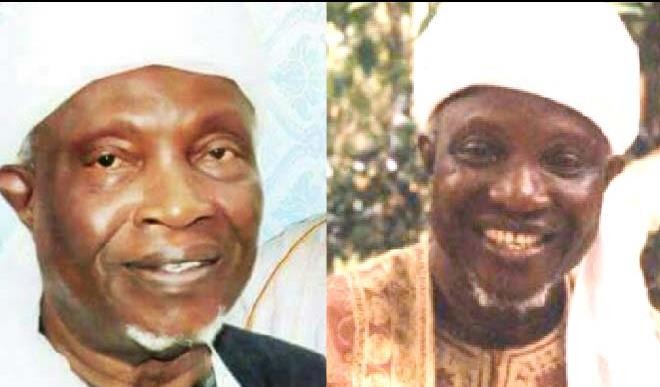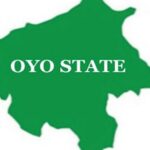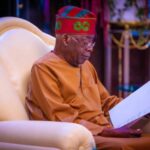
Nigeria currently mourns two literary giants of different traditions. One of them is Abiola Irele, renowned Professor of French and African Literature and the other, Shaykh Mustapha Zuglool, a world-class and arguably the most prolific traditional Arabic literary writer in Southwestern Nigeria, after Shaykh Al-Iluriyy. While Abiola Irele passed on in faraway Boston in the United States of America on the Saturday the first day of July, 2017, Mustapha Zuglool breathed his last in Lagos on Wednesday July 5, 2017. Incidentally, they both passed on, around the age of 80. It is noteworthy that teaching, writing and public presentations are among the commonalities in the two scholars. While Abiola Irele had his roots in the Western literary tradition which he explored and exploited to the fullest in France, Spain, Italy, United States of America and other parts of the globe, Mustafa Zuglool attained eminence in the estimation of worthy Arab and non-Arab Arabic scholars and men with elegant learning. He penetrated and bestrode like a colossus several hitherto impregnable learned arenas in Egypt, Syria, Lebanon, Palestine, and Iraq, during their heydays.
Biodun Jeyifo called Irele’s “a prodigious legacy and bountiful bequest”, while Niyi Osundare characterized his death as a product of ‘a conspiracy between serendipity and fate”, whereas several other eminent literati have viewed him through the lenses of Africa in the World and the World in Africa. But, have Arabic scholars in contemporary Nigeria cultivated a good taste for such judgmental characterizations? This explains why literary criticisms bring about both enmity and animosity among them. Abiola Irele was as unrepentantly critical of Soyinka as Odia Ofeimun was of J. P, Clark in The Poet Lied. While this is the case in the Arab settings of Egypt, Syria, Lebanon and others, where Arabic writers are already winning Nobel Prizes, a large section of the traditional Arabic scholars in Nigeria are ridiculously wander and meander in the tradition of “Don’t insult my shaykh” as they hold rather tenaciously to their belief in the literary infallibility of minor scholars and petty intellectuals!
Shaykh Zuglool’s scholarship may be appreciated in the context of the scholarship of his teacher, Shaykh Adam Al-Iluriyy, as well as that of Shaykh Kamaludden Al-Adabiyy and Shaykh Murtadha Abdus-Salam of Ibadan. In order to engage with the subject of this piece, I shall categorise the activities of these leading traditional Islamic leaders into eight foci namely teaching, preaching, sermonisation, prosification, versification, local history, political comments, international relations analysis. In specific terms, I shall demonstrate how Shaykh Zuglool fell short of matching the performances of his three senior contemporaries in four of these foci. I shall equally demonstrate how he surpassed their achievements in three and competed rather casually with one of them on a particular front.
The best teacher award may be a matter of contestation among the trio of Al-Adabiyy, Al-Iluriyy and Abdus-Salam. An assessment of the quality of their students, at the time of their transition reveals that there were few professors and several Ph.Ds among such students, for each of them. There also were numerous public Islamic and Arabic scholars. Prof. Musa Ajetumobi and Prof. Abdul-Ganiyy Oladosu are among the notable university professors of Adabi orientation while Prof. ‘Deremi Abubakr and Prof. Murtada Bidmos are among professors of Markazi background whereas Prof. Muhib Opeloye and Dr. Isa Ade Bello are traceable to Ma’had. Conversely, the highest ranked academic among Shaykh Zuglool’s students is no more than an Associate Professor in a Nigerian university. There are two others at the rank of Assistant Professor (Senior Lecturer) in two foreign universities. There is yet another one who is a Master’s degree holder and an Assistant Lecturer in Lagos. Although there may be almost ten other Ph.Ds among them, most of such may not intellectually match those established academics among the students of the comparable trio. The issue involved here may even be settled by considering that one of the students of Al-Iluriyy, Ishaq Oloyede, is immediate past Vice-Chancellor of the University of Ilorin and current Registrar of the Joint Admissions and Matriculations Board (JAMB). It may be further settled by reckoning that the students of Al-Adabiyy out-number those of any of his peers in Public Service and the Professions, especially in Kwara State and its environs. Remarkably, Shaykh Abdus-Salam recorded almost the same level of achievement through his highly rated students.
The best preacher award may be earned by Al-Adabiyy! Sermonisation may be subsumed under preaching which has both a purpose and a culture. He arguably is closer to the preaching tradition than the other three who also attained varied degrees in public recognition and acceptance. This claim finds support in the ubiquitous nature of his students among the reputable public Muslim preachers in Southwestern Nigeria. Where content and character of as well as commitment to preaching count, Al-Adabiyy is much likely to tower higher than his peers in the traditional Islamic setting. Al-Iluriyy who arguably ranked next to him in this regard was head and shoulders above the trio in both prosification and versification. He wrote many Arabic books and poems to compete with the sand of the seashore. Yet, Al-Iluriyy was more of an essayist and prosifier than a poet and versifier. In poetical compositions, he fell short of matching the achievement of Shaykh Nasir Kabara of Kano and few other Northern Nigerian traditional master Arabic versifiers but who are not within the scope of this piece. Nonetheless, it is remarkable that there is a wide gap between Al-Iluriyy and Mustapha Zuglool, the man in the second position of prosification in Southern Nigeria. Afterall, an author of only seven books may not be considered a credible match to one who published more than twenty books and several booklets.
However, wherever impact factor really counts, Zuglool whose sermons and public presentations are characteristically rich in literary value, may emerge a better and more effective user of the language. For instance, one can easily recall the impact of his presentation at Al-Iluriyy’s funeral in 1992. Equally memorable was his earlier epoch-making performance at the 40th Anniversary of his alma mater, in 1990. Mental pictures of over one hundred instances of such presentations come to mind at this juncture. It should be pointed out that these are evaluative remarks that may be well understood by only scholars bereft of skewed learning. I must hasten to remark that Shaykh Murtadha Abdus-Salam was by all standards the best of them all in Islamic Jurisprudence and Arabic Syntax! None of the trio was known to have ventured so boldly and confidently in pronouncing on technical questions on these two subjects in the manner in which this revered man of learning did. Evidence of this is avalanche in my possession.
The three areas where Mustapha Zuglool’s achievement surpassed the attainments of all the other three are local history, political comments, and international relations analysis. I am not familiar with any Arabic scholar, dead or alive, in the Southwestern geopolitical zone of Nigeria, who engaged with any of these three foci with a more incredible dexterity. I stand to be better educated on this assertion. The outstanding nature of his performance in these areas lies in his effortless recollection of, casual allusion to, as well as appropriate application of, historical, political and global facts and figures, with an incredulous accuracy and precision. Instances of this are numerous in his public intellectual engagements.
I am also not familiar with any of his contemporaries that is close to his level of standard Arabic expressions. I must hasten to clarify a possible ambiguity by stating that the scope of my claim here covers only traditional Arabic scholarship. I certainly am not oblivious of the presence of better users of Arabic in the Southwest let alone the northern parts of the country. Such eminent Arabic scholars may be found in both the academic and traditional settings in the North. However, they may only be found outside the university setting especially in the Oyo/Osun axis of the Southwest. I am not familiar with any such Arabic writer in any university in the Southwest. Similarly, I am also not familiar with any scholar of that attainment in Lagos and its environs, whether in the academic or traditional Arabic setting, excepting, of course to an arguable extent, a particular genial Yoruba-speaking Professor of Arabic and Middle Eastern Studies, in Lagos!
To be more specific, no Yoruba-speaking Arabic writer of my acquaintance has demonstrated an equal virtuousity in pen portraits, handling of ideas and images, admixture of prosification and versification, overtones and undertones. Now that Mustapha Zuglool is gone, who is that Islamic scholar that is left to take us on historical excursions across Yorubaland especially where religio-cultural and socio-political history is required! Who is that versatile Yoruba-speaking shaykh that is left to provide us some Islamic-based critical perspectives on political events as they unfold in Nigeria! Who is that public Islamic speaker of Yoruba ancestry capable of offering us eye-opening analyses on international relations in connection with the Middle East and the entire Muslim world!
What Professor Francis Abiola Irele did in French and English was what my teacher, Shaykh Mustapha Zuglool Sunusi recorded in Yoruba and Arabic. Nigeria and the world of scholarship have lost the duo at about the same time and age. What a coincidence! Adieu!
Saheed Ahmad Rufai, is Dean, Faculty of Education, Sokoto State University.

 Join Daily Trust WhatsApp Community For Quick Access To News and Happenings Around You.
Join Daily Trust WhatsApp Community For Quick Access To News and Happenings Around You.


